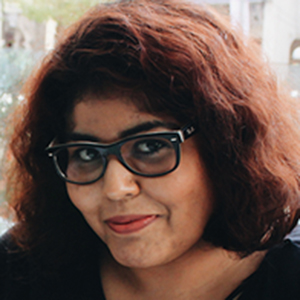Last week I wrote an article on my choice to be child-free in this very column. It was not the first time I had written about a particularly personal and private aspect of my life, and yet I questioned myself whether or not I was being a bit too open with the readers and by extension, the treacherous world that is the internet.
One commenter did not mince their words. “I think that you should keep your personal predicaments, problems and opinions to yourself. I don't understand the point you're trying to make,” read the comment from a certain Mazlan Abdullah.
That surely did not help. Was I wrong on writing about an issue that often makes for the only conversation people have with me? Would I not be better off discussing hot topics like everyone else is? Is that not my responsibility as a writer and social commentator?
But then again, I am a writer second, a woman first. I see the world through my lens, feminist tinged and socially unrestricted. And at the heart of my writings has always been the one focus – to give voice to the lived realities of women, be it myself or other women in my life.
This mental tango led me to a stream of questions that I have been trying to address through my professional and creative endeavours:
Why does the narrative of a woman put so many people on edge? Should I, as a writer, keep my personal experiences, problems and opinions to myself? Would the same apply if I were a man? Would I then be told to keep my ideas to myself?
I highly doubt that. It took BBC close to two decades to finally take action on complaints of racism, bigotry and sexism against Jeremy Clarkson. Ridhuan Tee is still spewing his vitriol on the national platform while continuing to mould the minds of university students.
Aisyah Tajuddin, the BFM presenter, is attacked vilely online with death and rape threats for her role in hosting a video that is harmless, while Michelle Yesudas, a lawyer, warranted a Twitter witch-hunt by the IGP all over a tweet in which she expressed her fear of the rising hostility towards women in the country.
If these recent developments are any indicators, it is that the voice of a woman is far more dangerous than the actions of men. That we are willing to accept the gross violations committed by half the population while threatening or even subjecting the other half to violence should they dare share their thoughts.
From the literatures I read to the movies I watch and the shows I obsessively follow, women characters are often two-dimensional caricatures.
If they are poor, then they are destitute, fat and ugly; or so beautiful that they can’t help but snag the richest and most handsome man. If she is smart and successful, she is bitchy or emasculating; and if she is popular, she is easy and is a slut.
It seems to me that women are more palatable to the society at large if they fit the narratives prescribed to them rather than writing their own narratives. Because a woman who does not toe the line is a threat to patriarchy, and any threat to the system needs to be shut down.
“Taking away its power to cut you down and shut you up,” write Laurie Penny on rejecting patriarchal approval in her book ‘Unspeakable Things’.
When accepting the Vanguard Award at the 2015 GLAAD Media Awards, actress and social activist Kerry Washington said: "Having your story told – as a woman, as a person of colour, as a lesbian or as a trans person, or as any member of any disenfranchised community – is sadly often still a radical idea. There is so much power in storytelling, and there is enormous power in inclusive storytelling, in inclusive representations."
The most powerful way for me to reject patriarchal approval is through my writings – narratives that are crafted through my lived experience, coursing through my feminist veins and beating in my heart that is every bit a woman and forever questioning societal oppression. – March 29, 2015.
* This is the personal opinion of the writer or publication and does not necessarily represent the views of The Malaysian Insider.


Comments
Please refrain from nicknames or comments of a racist, sexist, personal, vulgar or derogatory nature, or you may risk being blocked from commenting in our website. We encourage commenters to use their real names as their username. As comments are moderated, they may not appear immediately or even on the same day you posted them. We also reserve the right to delete off-topic comments